
Armed protests in U.S. statehouses that preceded U.S. Capitol riot
When President Trump-supporting insurrectionists stormed the U.S. Capitol in an attempt to overturn the presidential election on Wednesday, Jan. 6 2021 the nation was shocked, but not unwarned. A series of dress rehearsals of sorts have played out in statehouses in Michigan, Oregon, Idaho and elsewhere in recent months, with armed protesters forcing their way into buildings.
Section:Picture story
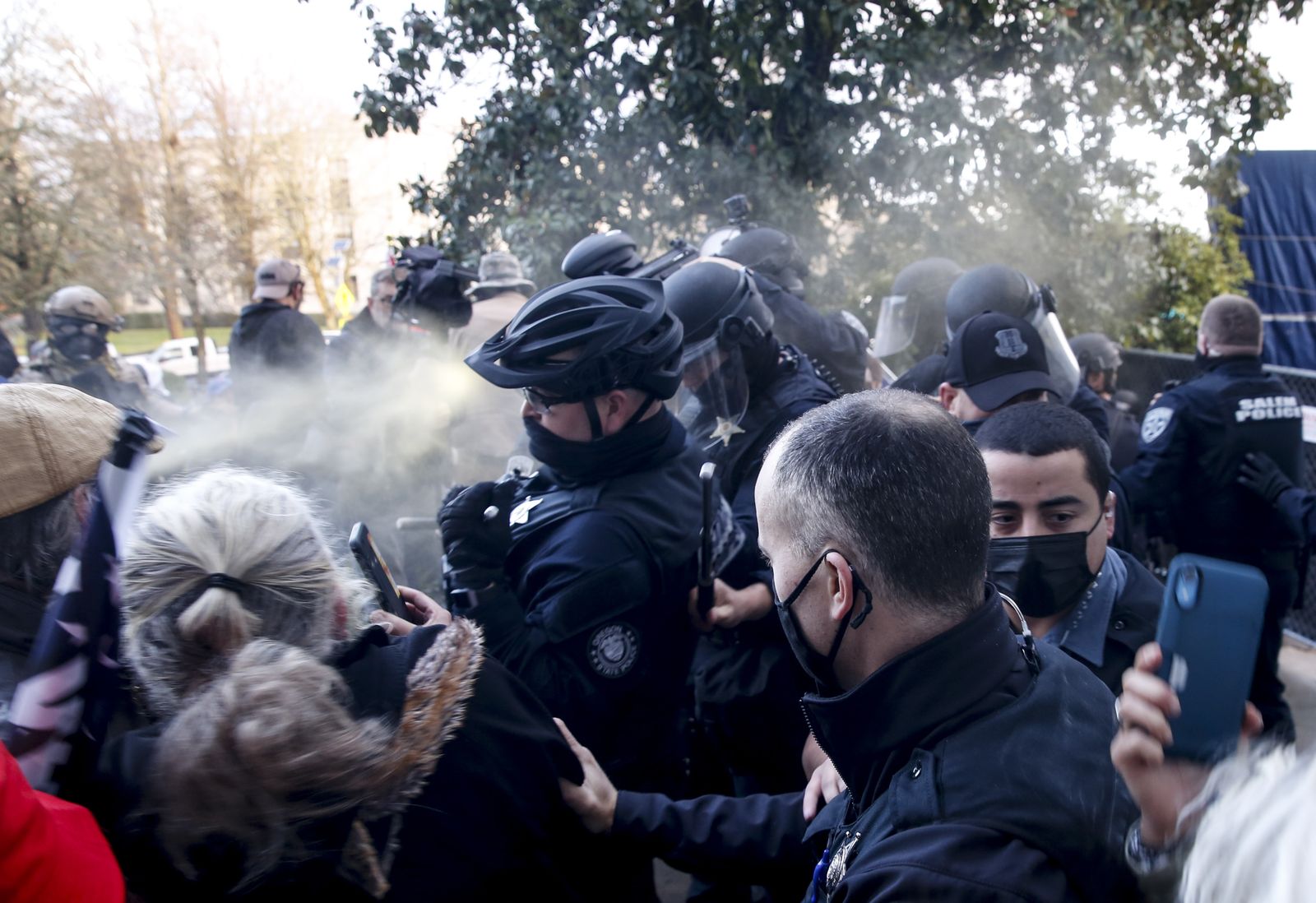
In this Dec. 21, 2020, photo, protesters spray mace toward police as they attempt to get into the Oregon State Capitol during a special session of the state legislature in Salem, Ore. When President Trump-supporting insurrectionists stormed the U.S. Capitol in an attempt to overturn the presidential election on Wednesday, Jan. 6 2021 the nation was shocked, but not unwarned. A series of dress rehearsals of sorts have played out in statehouses in Michigan, Oregon, Idaho and elsewhere in recent months, with armed protesters forcing their way into buildings.
Abigail Dollins Statesman-Journal via AP
SARA CLINE Associated Press
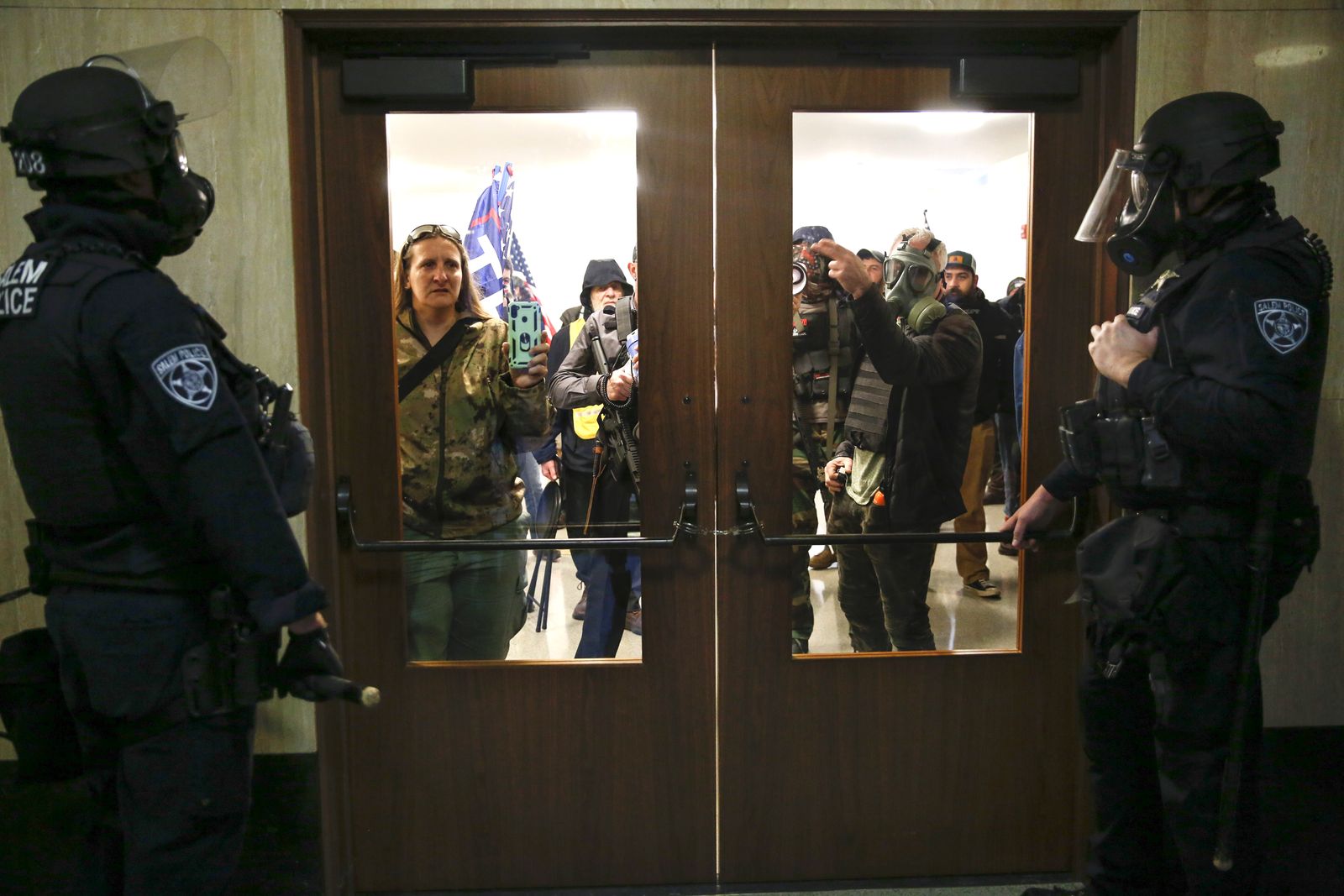
In this Dec. 21, 2020, photo, protesters try to get into the Oregon State Capitol during a special session of the state legislature in Salem, Ore. When President Trump-supporting insurrectionists stormed the U.S. Capitol in an attempt to overturn the presidential election on Wednesday, Jan. 6 2021 the nation was shocked, but not unwarned. A series of dress rehearsals of sorts have played out in statehouses in Michigan, Oregon, Idaho and elsewhere in recent months, with armed protesters forcing their way into buildings.
Abigail Dollins Statesman-Journal via AP
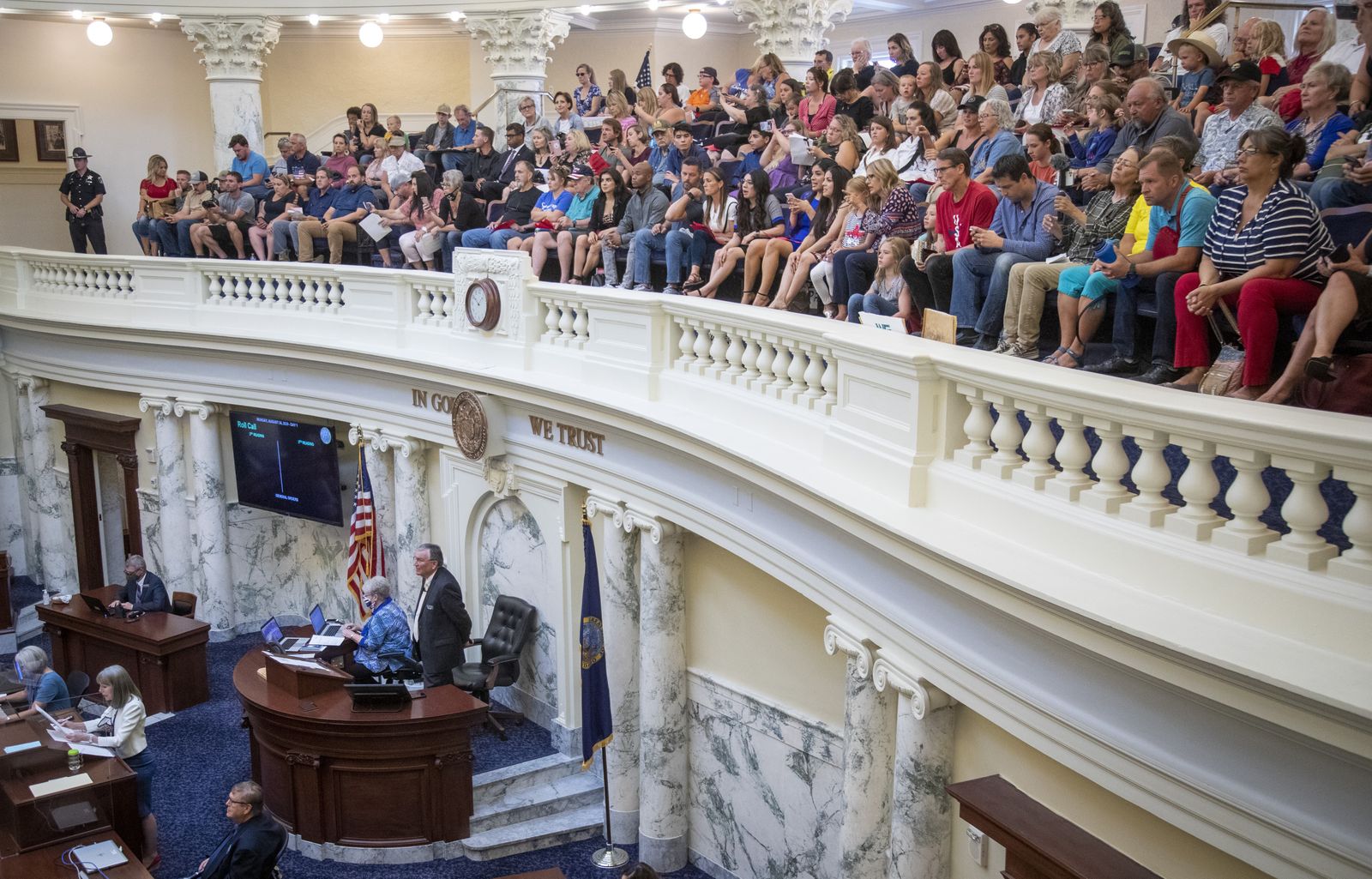
In this Aug. 24, 2020, photo, following the arrangement by Speaker of the House Scott Bedke, protesters fill the fourth-floor gallery seating without social distancing as the special session got underway in Boise, Idaho. When President Trump-supporting insurrectionists stormed the U.S. Capitol in an attempt to overturn the presidential election on Wednesday, Jan. 6 2021 the nation was shocked, but not unwarned. A series of dress rehearsals of sorts have played out in statehouses in Michigan, Oregon, Idaho and elsewhere in recent months, with armed protesters forcing their way into buildings.
Katherine Jones Idaho Statesman via AP
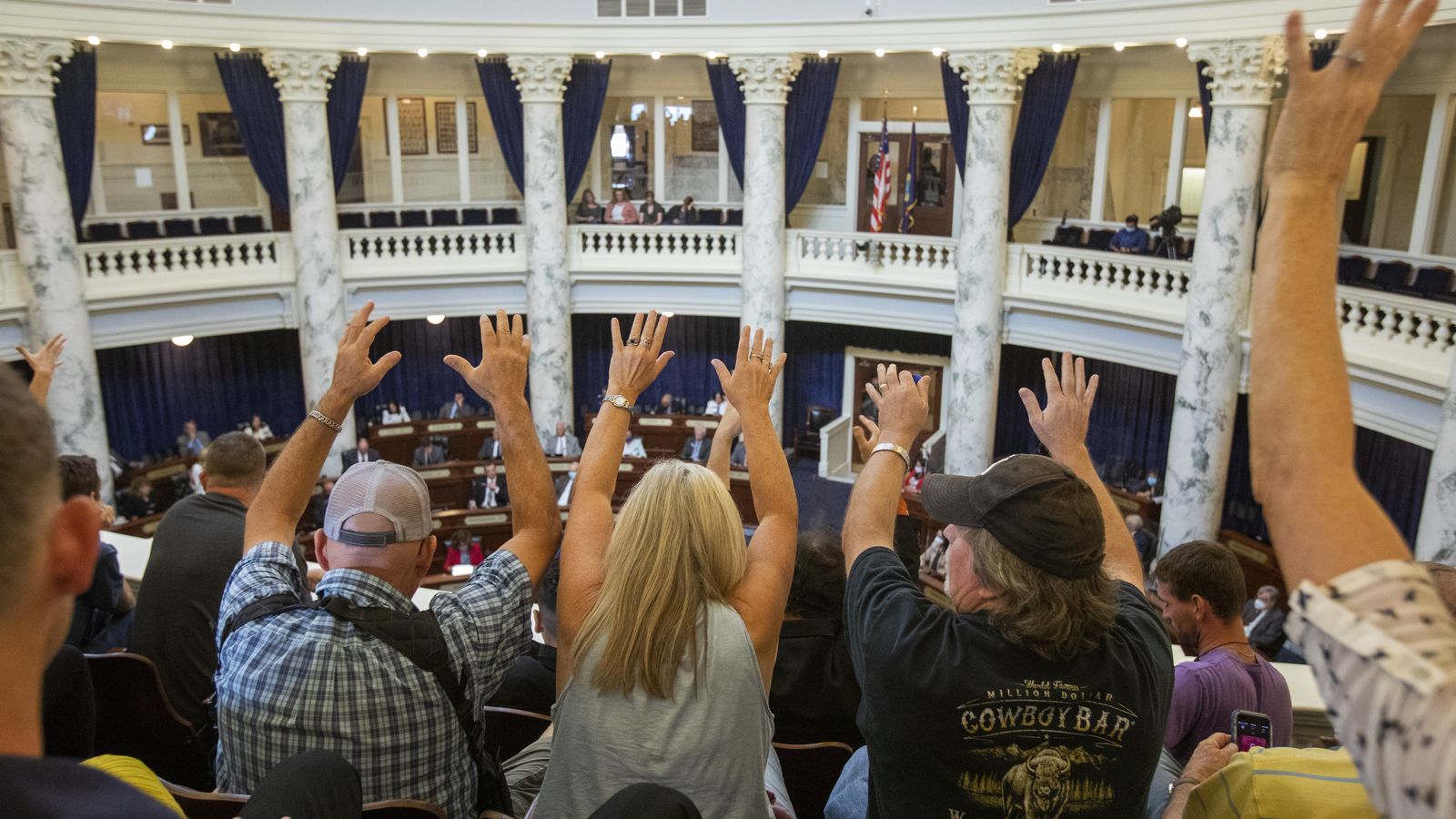
In this Aug. 25, 2020, photo, spectators in the Capitol gallery in Boise, Idaho, silently indicate their approval for speakers who supported a resolution as the House debated a concurrent resolution that would end the coronavirus emergency declaration that Gov. Brad Little signed in March. When President Trump-supporting insurrectionists stormed the U.S. Capitol in an attempt to overturn the presidential election on Wednesday, Jan. 6 2021 the nation was shocked, but not unwarned. A series of dress rehearsals of sorts have played out in statehouses in Michigan, Oregon, Idaho and elsewhere in recent months, with armed protesters forcing their way into buildings.
Katherine Jones Idaho Statesman via AP
KEITH RIDLER Associated Press
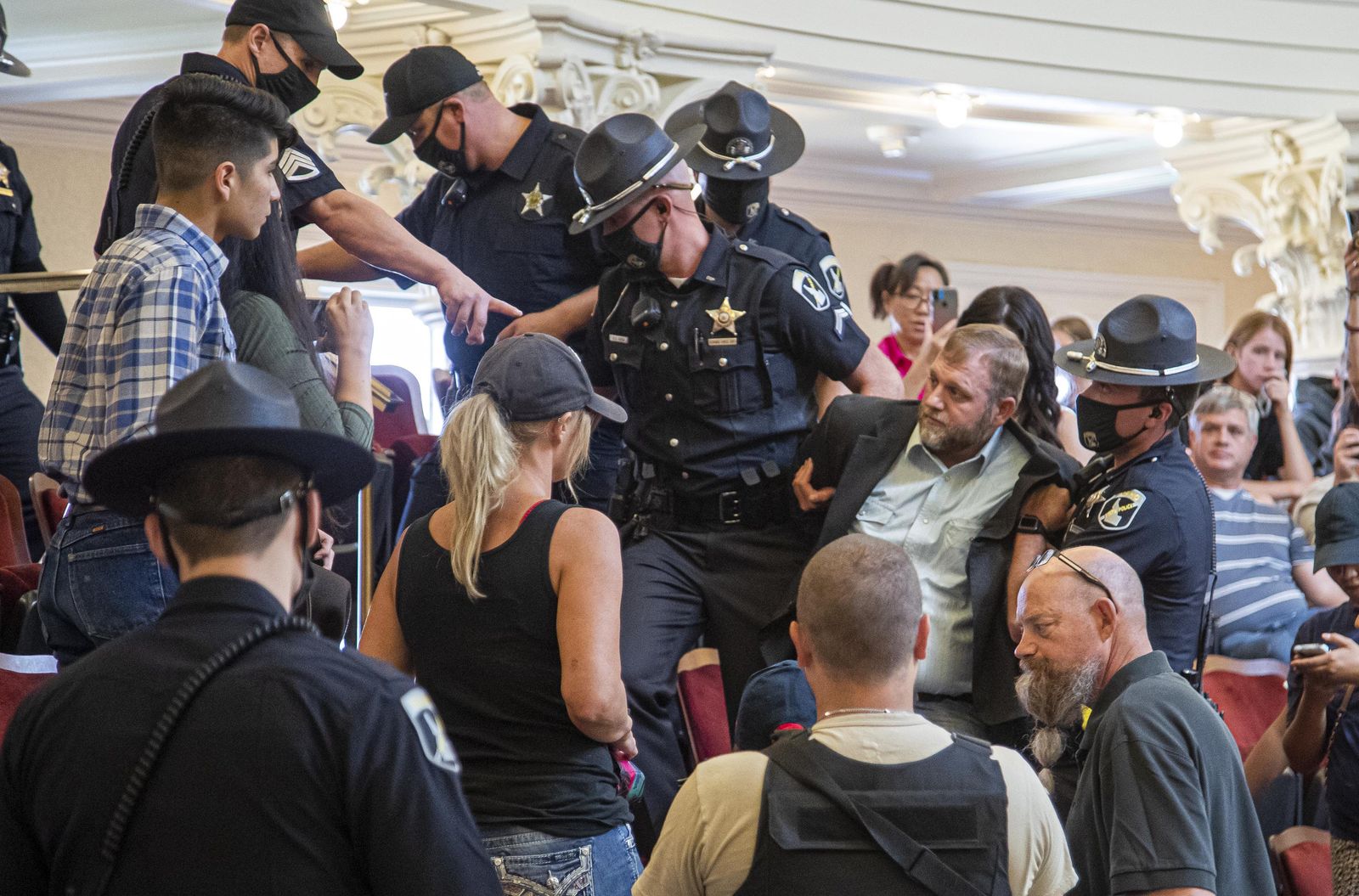
In this Aug. 26, 2020, photo, Ammon Bundy is dragged from the Idaho Senate Chambers gallery by Idaho State Troopers after returning to the Idaho Statehouse in Boise, Idaho. When President Trump-supporting insurrectionists stormed the U.S. Capitol in an attempt to overturn the presidential election on Wednesday, Jan. 6 2021 the nation was shocked, but not unwarned. A series of dress rehearsals of sorts have played out in statehouses in Michigan, Oregon, Idaho and elsewhere in recent months, with armed protesters forcing their way into buildings.
Darin Oswald Idaho Statesman via AP
DAVID EGGERT Associated Press
Paul Sancya Associated Press
MICHAEL R. BLOOD and ADAM BEAM Associated Press
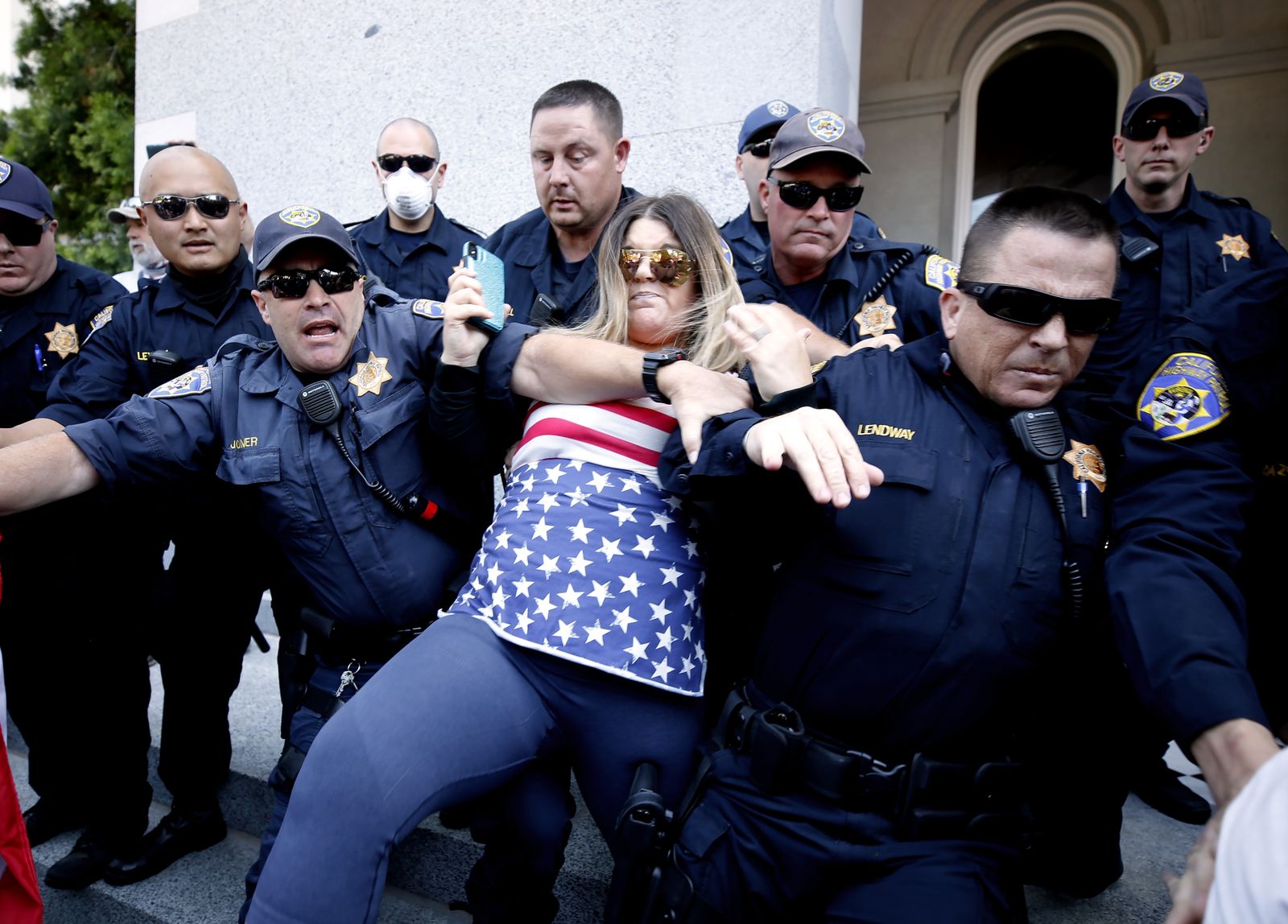
In this May 1, 2020, photo, a protester is detained by California Highway Patrol officers during a demonstration against Gov. Gavin Newsom’s stay-at-home orders due to the coronavirus pandemic, at the Capitol in Sacramento, Calif. When President Trump-supporting insurrectionists stormed the U.S. Capitol in an attempt to overturn the presidential election on Wednesday, Jan. 6 2021 the nation was shocked, but not unwarned. A series of dress rehearsals of sorts have played out in statehouses in Michigan, Oregon, Idaho and elsewhere in recent months, with armed protesters forcing their way into buildings.
Rich Pedroncelli Associated Press
MIKE HOUSEHOLDER and ED WHITE Associated Press
Paul Sancya Associated Press